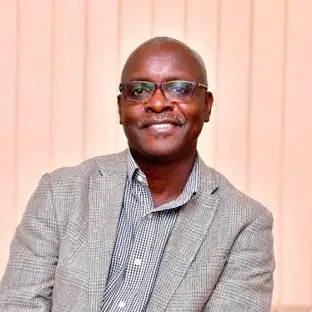Former Vision Group CEO Robert Kabushenga’s aspirations to become the Executive Director of the Kampala Capital City Authority (KCCA) have been cut short after the Ministry of Public Service rejected his application due to insufficient qualifications. Kabushenga, known for his long tenure and transformative work at Vision Group, had openly expressed his desire to lead KCCA, Kampala’s primary municipal administration authority, which manages city planning, infrastructure, and service delivery.
Kabushenga announced the ministry’s decision on X (formerly Twitter), sharing, “I do NOT meet the minimum requirements for the job of Executive Director of @KCCAUG. I do not hold a Master’s Degree. For this reason, I will not make the shortlist.” He also thanked his supporters, saying, “So it ends here for me. In the meantime, I will keep left!”
The Public Service Commission, responsible for overseeing recruitment for government roles, confirmed that Kabushenga’s lack of a postgraduate degree made him ineligible for consideration. A spokesperson from the Ministry of Public Service explained that all applicants were evaluated rigorously to ensure they met the established qualifications, including holding a master’s degree, which is essential for senior government leadership positions like that of KCCA’s Executive Director.
The role of KCCA Executive Director has significant responsibility, as it involves steering urban management, policy implementation, and economic growth initiatives in Uganda’s bustling capital. Observers believe that Kabushenga’s extensive media experience might have brought a unique perspective to the role, but the strict qualification requirements prevailed.
Rev. Fr. Simon Kakande, a clergy member active in civic matters, commented on the situation, underscoring the importance of both academic credentials and experience for high-level government positions. “Positions of this magnitude demand more than ambition; they require the educational foundation that equips leaders to navigate complex issues,” he noted, encouraging professionals aspiring to public office to pursue further education.
Kabushenga’s career in Uganda’s media landscape has spanned nearly two decades. Under his leadership, Vision Group grew into one of the largest media conglomerates in East Africa. While his journey with KCCA ends here, Kabushenga remains a respected figure in Uganda, and his statement, “I will keep left!” hints at continued involvement in public discourse, albeit from outside the corridors of KCCA.
While the rejection of Robert Kabushenga’s application for the KCCA Executive Director role has made headlines, several details about the recruitment process and its wider implications remain unclear:
- Other Candidates: The identities and qualifications of other candidates vying for the KCCA Executive Director role have not been disclosed. This makes it difficult to assess how Kabushenga’s experience compares to those who may advance in the selection process.
- Exact Qualification Standards: While it’s known that a master’s degree is required, the ministry has not clarified if other specific professional or technical qualifications are equally essential. This raises questions about whether further expertise or certifications might weigh in the decision.
- Selection Criteria Beyond Academic Requirements: It remains uncertain if the ministry considered non-academic factors, such as extensive industry experience, innovative approaches, or leadership skills, which might benefit KCCA in areas beyond formal qualifications.
- Recruitment Timelines: Details about the timeline and next steps in the recruitment process have not been provided, including when shortlisted candidates will be announced or when final decisions are expected. This leaves a gap for the public in terms of understanding when a new KCCA head might take office.
- KCCA’s Strategic Vision: It’s unclear what vision or direction the government expects the new Executive Director to prioritize for Kampala. Since KCCA manages critical infrastructure and services for the capital, clarity on whether the government seeks a transformative or stabilizing leader would provide insight into the type of leadership they favor.
- Public Response to the Rejection: Although Kabushenga has acknowledged the decision with grace, we have yet to see whether there will be further public discussion or support for adjusting the qualifications. This could reflect public opinion on whether experience could sometimes substitute for formal education in specific roles.
- Possibility of Future Policy Changes: Given the rejection based solely on qualifications, it remains to be seen if there will be discussions in government about flexibility in hiring standards for high-profile positions. This case could set a precedent or spark debate on whether certain positions should consider professional achievements alongside academic qualifications.
Do you have a story in your community or an opinion to share with us: Email us at editorial@watchdoguganda.com













